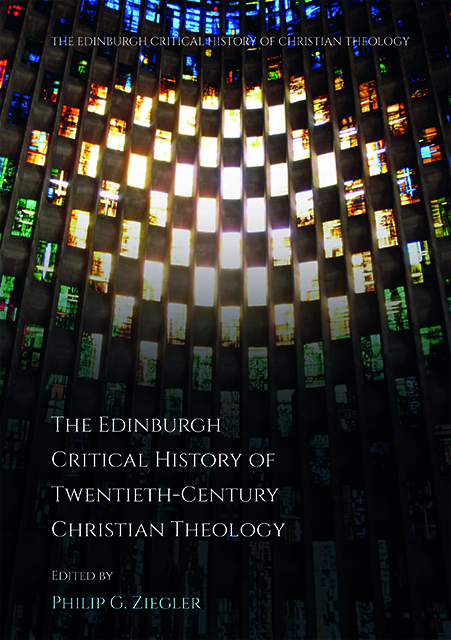Book contents
- Frontmatter
- List of Contents
- Notes on Contributors
- Editor's Introduction
- 1 Modern Theology in a Scientific, Historical Age
- 2 Tradition and Innovation
- 3 Scripture and Criticism
- 4 Reason, Method, System
- 5 Catholicism and Ecumenism
- 6 Fundamentalism and Evangelicalism
- 7 Synagogue, Sho’ah and State
- 8 Religion(s)
- 9 God
- 10 Spirit
- 11 Christ
- 12 Liberation and Freedom
- 13 The Secular – The Political: Augustine and Political Augustinianism in Twentieth-Century Political Theology
- 14 Globalisation after Empires: World Christianity and the Theological De-centring of Europe
- 15 War and Peace
- 16 Race and Black Theology
- 17 Sex and Gender
- 18 Hope
- Index
1 - Modern Theology in a Scientific, Historical Age
Published online by Cambridge University Press: 14 July 2023
- Frontmatter
- List of Contents
- Notes on Contributors
- Editor's Introduction
- 1 Modern Theology in a Scientific, Historical Age
- 2 Tradition and Innovation
- 3 Scripture and Criticism
- 4 Reason, Method, System
- 5 Catholicism and Ecumenism
- 6 Fundamentalism and Evangelicalism
- 7 Synagogue, Sho’ah and State
- 8 Religion(s)
- 9 God
- 10 Spirit
- 11 Christ
- 12 Liberation and Freedom
- 13 The Secular – The Political: Augustine and Political Augustinianism in Twentieth-Century Political Theology
- 14 Globalisation after Empires: World Christianity and the Theological De-centring of Europe
- 15 War and Peace
- 16 Race and Black Theology
- 17 Sex and Gender
- 18 Hope
- Index
Summary
‘What is it that underlies change?’, Aristotle asked, in one of the oldest reflections we possess on stability and novelty in creaturely life. What underlies, what subtends and supports the dynamic efflorescence of animal and human life within this island home? Famously, Aristotle answered his own question with his stubbornly elusive discussion of ‘substance’, a category that would subvent all change in concept and property, until the dawn of the modern era. But we need not import ‘substance’ directly into our discussion of history and science in the modern era – that would undermine too plainly the championing of novelty that is a hallmark of the modern – but we will nevertheless need something in its place. For the modern world, in its historical, scientific and theological reasoning, is a place where the novel jostles alongside the enduring, and the focus upon the novel, the stark break and rupture with the past, the emancipatory and revolutionary – so strongly associated with modernism – will stand, all the same, shoulder to shoulder with the substantial, the memorialised, the inherited, the continuous and the ancient. It has been the stuff of textbook and popular saga to say that the modern erupted as a brutal overthrow of the ancien régime, an enemy of the aristocratic, the clerical, the traditional and enduring. But neither history nor science, for all their disruptive power, exists wholly as enemy of religion, nor have they, as magnitudes of human thought, emptied out or made otiose the worlds of cosmology, metaphysics and the Divine. Rather we might think of the modern, most especially but not exclusively the modern in the West, as a rather frayed garment of transformation and stability, of revolution and the longue durée. Indeed, the very idea of ‘the modern’ might be taken not as a synonym for the new, but rather as a placeholder for the dynamic interplay between the continuous and the interrupted, the stable and the ruptured.
This is not the story usually told. Any student of the unfolding rise of modernism in the West will remember the familiar story, the narrative of the modern as pioneer of rupture.
- Type
- Chapter
- Information
- Publisher: Edinburgh University PressPrint publication year: 2022

